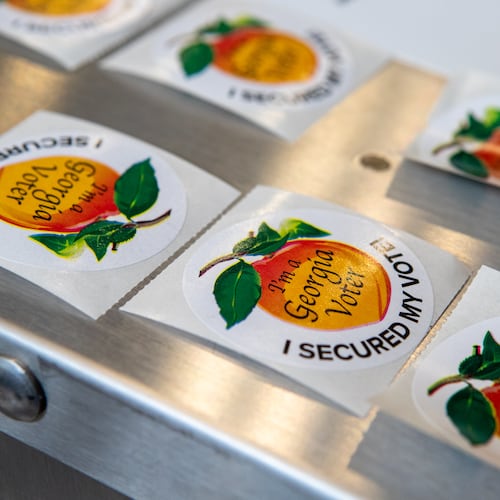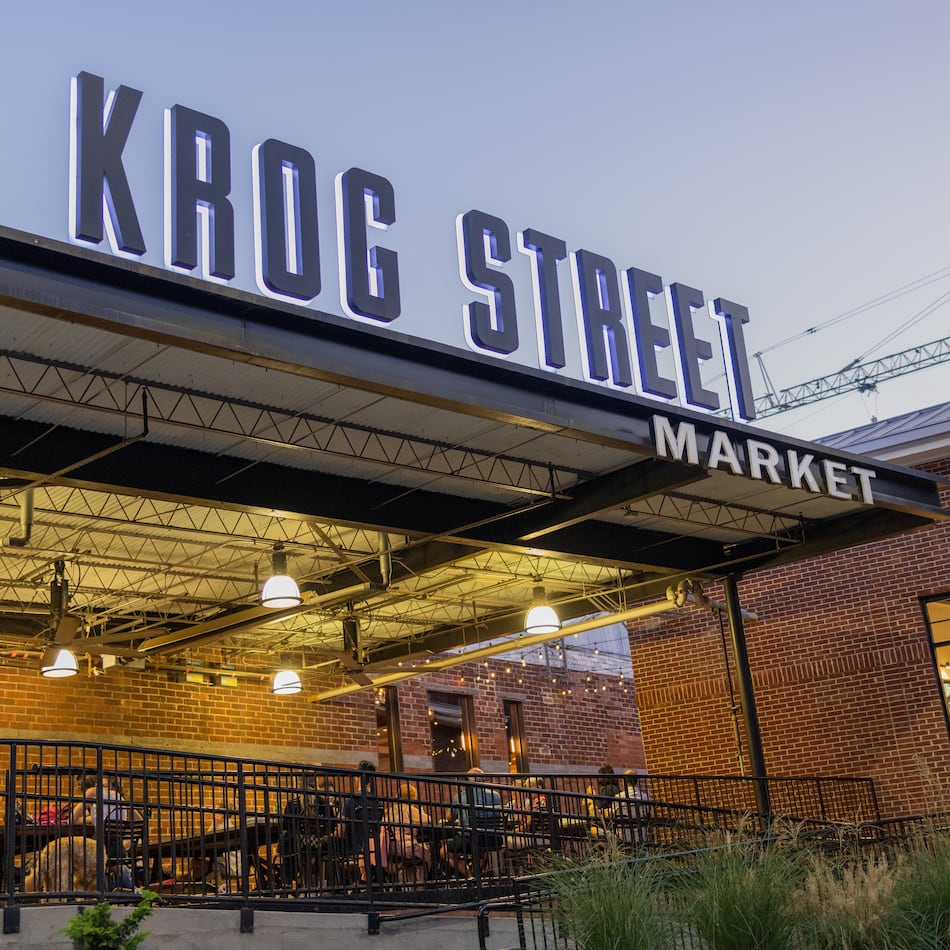Georgians began feeling the impact of Washington’s latest shutdown showdown on Wednesday as local federal offices furloughed employees and rolled back nonessential services.
Tens of thousands of federal workers in the state were directed to stay home after members of Congress couldn’t come to an agreement on Tuesday to keep the government open.
The campus of the Atlanta-based Centers for Disease Control and Prevention sat eerily quiet on Wednesday morning with two-thirds of its staff furloughed, including the employees who review surveillance data for disease spikes and communicate with the public about outbreaks.
The Department of Veterans Affairs closed its regional benefits offices and halted its career counseling programs. No new farm loans from the U.S. Department of Agriculture were issued, and Georgia agriculture officials warned of a slowdown of much-needed disaster aid to farmers still reeling from the impacts of Hurricane Helene.
Historical sites around the state locked up bathrooms and information centers. That included National Park Service sites in Jimmy Carter’s hometown of Plains, which sat closed on what would have been the late president’s 101st birthday.
Meanwhile, thousands of other federal employees labeled essential for protecting life and property reported to the office, including food safety inspectors, law enforcement officials at the FBI’s Atlanta field office, and Immigration and Customs Enforcement agents.
Air traffic controllers and TSA agents at Hartsfield-Jackson Atlanta International Airport continued to work, as did active-duty troops, customs agents at Georgia’s ports and Bureau of Prisons correctional officers.
Credit: Ben Hendren
Credit: Ben Hendren
But all of those workers deemed essential will work without pay until Congress approves a new spending plan. That could take days, weeks or even longer.
Congressional Republicans and Democrats appeared to dig in on their respective negotiating positions throughout the day Wednesday, with each side blaming the other for the shutdown.
Republicans want to extend current federal funding levels through Nov. 21. Democrats are demanding that the GOP agree to extend more than $1 trillion in Obamacare subsidies set to expire at the end of the year and reverse health care cuts to programs like Medicaid that were included in President Donald Trump’s signature tax and spending plan this summer. Democrats have warned that millions of people could lose their health care coverage — or see the prices of their plans steeply increase — starting next year if those changes aren’t averted.
Senate Majority Leader John Thune, R-S.D., said he’s willing to negotiate separately on health care policy but accused Democrats of holding government funding “hostage.”
To get Democrats to the negotiating table, Trump has threatened mass layoffs for federal workers and permanently ending federal programs supported by Democrats. On Wednesday, Trump’s top budget official announced the administration was freezing roughly $18 billion in funding for New York City infrastructure projects that have been priorities of Congress’ two top Democrats, Senate Minority Leader Chuck Schumer and House Minority Leader Hakeem Jeffries.
On the ground in Georgia, the effects of the stalemate were not yet evident on some of the most widely used government programs.
The Postal Service, which is self-funded, continued to deliver mail. Medicare and Social Security benefits continued to flow. Food stamps were also issued to recipients, but the U.S. Department of Agriculture, which administers the Supplemental Nutrition Assistance Program, warned that SNAP and other programs could only continue “subject to the availability of funding.”
Federal courts also continued to operate. The Administrative Office of the U.S. Courts said it had enough money saved to fund its work through Oct. 17, but afterward, any judicial functions deemed nonessential would lapse.
If history is any guide, the longer the shutdown continues, the more the impacts will be felt by everyday Americans.
During the last government shutdown, which began in late 2018 and lasted 35 days, some federal workers sought out payday loans or looked to local food banks to help them supplement their lost paychecks. Workers calling in sick at airports snarled air traffic, prompted a public outcry and helped prod members of Congress back to the negotiating table.
Credit: abbey.cutrer@ajc.com
Credit: abbey.cutrer@ajc.com
Across the street from downtown’s Sam Nunn Atlanta Federal Center, the owner of a cafe that serves many of the federal workers there worried about what might happen to her business if the shutdown extended for a long time.
“No business, how (will) I survive?” asked Jasmine Jamil, owner of Subs & Salads Junction. “I have to pay the rent. Rent is not going to stop.”
In the meantime, at least two Georgia lawmakers said they’d forgo their salaries as negotiations continue: U.S. Sen. Jon Ossoff, D-Ga., and U.S. Rep. Buddy Carter of St. Simons Island, who is among the Republicans challenging Ossoff in next year’s Senate election.
The shutdown didn’t stop everyone from visiting federally run parks on Wednesday.
At Kennesaw Mountain National Battlefield Park, hikers, joggers, and other visitors parked in an overflow parking lot not far from the site’s closed main lot and walked to the park trailhead.
“I wish Congress could get it together and serve the people,” said Dolores Hefner, a 65-year-old Roswell resident.
Maggie Robinson of Pennsylvania and her four friends were saddened when they arrived at the Martin Luther King Jr. National Historical Park in Old Fourth Ward on Wednesday morning, only to find the visitors center closed.
“We’re extremely disappointed,” said Robinson, who had embarked on what she described as a “Southern civil rights tour.” “This was the first and maybe the most important stop.”
The grounds of the site were still open, as were the King Center and the Martin Luther King Jr. Center for Nonviolent Social Change, which are not operated by the National Park Service.
Staff writers Shaddi Abusaid, Michelle Baruchman, Caleb Groves, Ariel Hart, Chris Joyner, Drew Kann, Joe Kovac Jr., Rosie Manins, Tia Mitchell, Jeremy Redmon, Adam Van Brimmer, Amy Wenk and Kelly Yamanouchi contributed to this article.
Georgia’s federal workforce
The federal government is a large employer in Georgia. There are just under 111,000 military and civilian federal workers in the state, according to preliminary August data from the Georgia Department of Labor.
The size of that workforce, however, is projected to shrink as the Trump administration continues to scale back federal agencies, including the Atlanta-based Centers for Disease Control and Prevention.
As of March 2025, here were the agencies with the most workers in Georgia, according to the Office of Personnel Management:
- Veterans Health Administration: 13,233
- Air Force Materiel Command: 12,422
- Centers for Disease Control and Prevention: 8,702
- Internal Revenue Service: 6,953
- Defense Health Agency military treatment facilities: 3,558
- Federal Aviation Administration: 2,473
- Transportation Security Administration: 2,348
- U.S. Fleet Forces Command: 1,950
- U.S. Army Installation Management Command: 1,883
- Social Security Administration: 1,605
-Amy Wenk and Tamar Hallerman
About the Author
Keep Reading
The Latest
Featured




